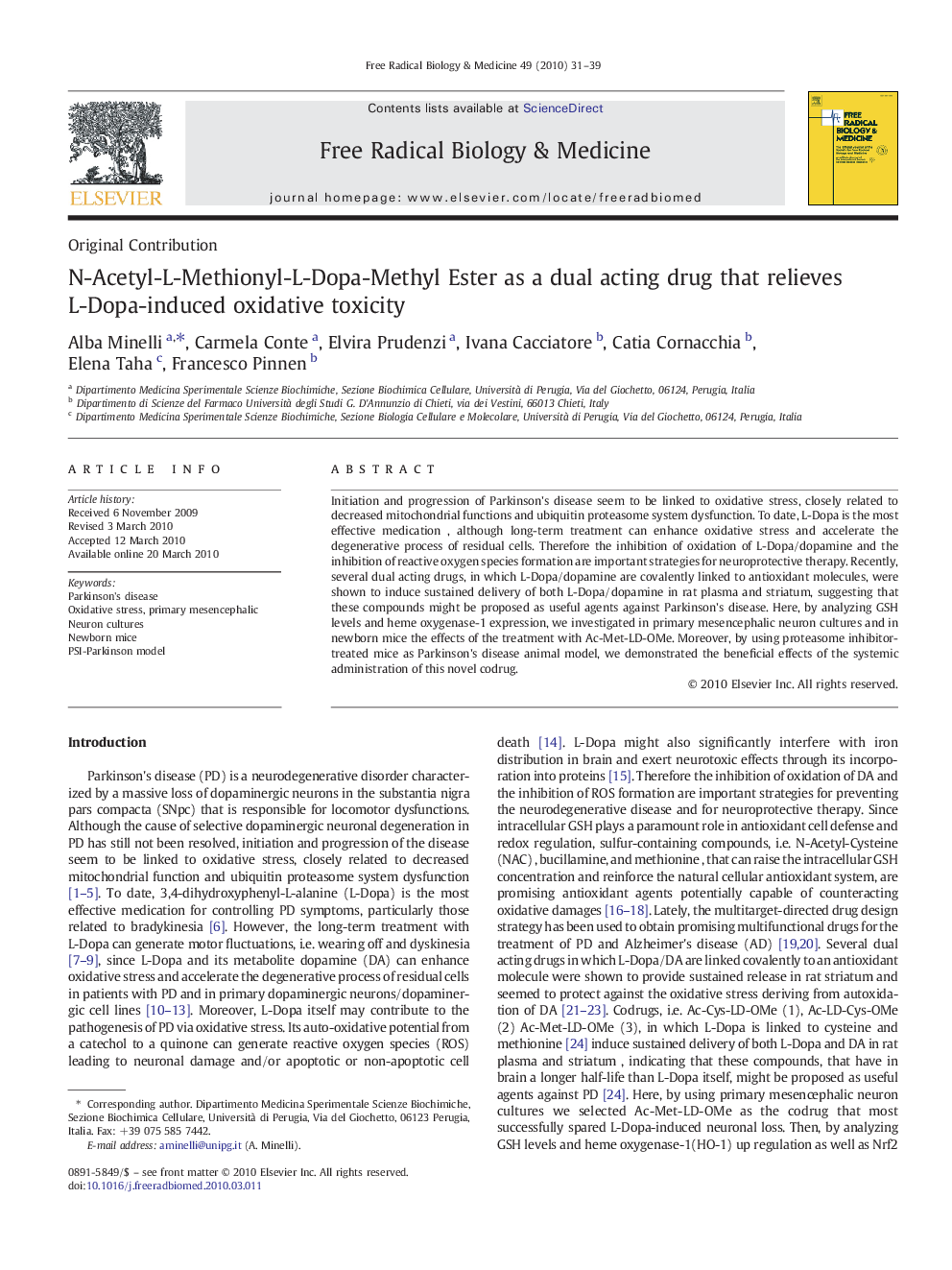| Article ID | Journal | Published Year | Pages | File Type |
|---|---|---|---|---|
| 1909414 | Free Radical Biology and Medicine | 2010 | 9 Pages |
Abstract
Initiation and progression of Parkinson's disease seem to be linked to oxidative stress, closely related to decreased mitochondrial functions and ubiquitin proteasome system dysfunction. To date, L-Dopa is the most effective medication , although long-term treatment can enhance oxidative stress and accelerate the degenerative process of residual cells. Therefore the inhibition of oxidation of L-Dopa/dopamine and the inhibition of reactive oxygen species formation are important strategies for neuroprotective therapy. Recently, several dual acting drugs, in which L-Dopa/dopamine are covalently linked to antioxidant molecules, were shown to induce sustained delivery of both L-Dopa/dopamine in rat plasma and striatum, suggesting that these compounds might be proposed as useful agents against Parkinson's disease. Here, by analyzing GSH levels and heme oxygenase-1 expression, we investigated in primary mesencephalic neuron cultures and in newborn mice the effects of the treatment with Ac-Met-LD-OMe. Moreover, by using proteasome inhibitor-treated mice as Parkinson's disease animal model, we demonstrated the beneficial effects of the systemic administration of this novel codrug.
Related Topics
Life Sciences
Biochemistry, Genetics and Molecular Biology
Ageing
Authors
Alba Minelli, Carmela Conte, Elvira Prudenzi, Ivana Cacciatore, Catia Cornacchia, Elena Taha, Francesco Pinnen,
